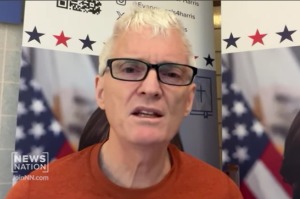World Vision: Pakistan IDPs Still Face Challenges
While much of the world's eyes and support have been directed toward quake-devastated Haiti, relief groups are not shying away from sharing the plight of others elsewhere in the world.
In Pakistan, Christian group World Vision reported Monday that increase in the number of displaced people could lead to further deterioration of the current conditions.
And, as the frontlines shift towards other troubled parts of Pakistan on the Afghan border, tens of thousands of people are likely to be displaced joining those already taking refuge in poor communities, it added.
"The conflict between government forces and the Taliban militants that triggered the displacement of more than 2.5 million people from Swat, Dir and Buner districts in May and June 2009 may be over, but daily life remains a challenge for the returning population," World Vision reported.
Since April 2009, the Pakistan government has been fighting Taliban militants who had taken over Swat Valley in northwest Pakistan. An estimated 2 million residents of Swat Valley and other areas in NWFP were displaced because of the fighting.
Though the Pakistani government announced in July 2009 that it was safe to return to Swat Valley and began to take people back to their homes by buses and trucks, fighting between the militants and the government continued.
To date, some 356,300 Internally Displaced Persons (IDPs) in Pakistan's Northwest Frontier Province (NWFP) have received emergency relief assistance and food provisions from World Vision through the Church World Service (CWS) and the World Food Programme (WFP).
Every month, food rations are being distributed to 60,000 households and water purification packets are distributed to ensure the displaced have clean drinking water.
Despite the response, the challenges facing World Vision and its partners still persist, such as the challenge posed by the military restrictions on movement and humanitarian activities by international organizations in the area.
"Over the coming months most of the IDPs will continue to need humanitarian assistance, specifically shelter, food, water and sanitation and the delivery of basic social services including health and education," World Vision reported.
Since the latest conflict between government forces and Taliban militants broke out last year, World Vision has been providing family kits, water purifiers and six-month cash support to particularly vulnerable families and has also been providing psychosocial support for children through two Child Friendly Spaces in Buner.
In addition to causing an unprecedented people movement, the recent conflict also destroyed homes, infrastructure and livelihoods when households had to abandon their fields during harvest, thus losing their produce.




























